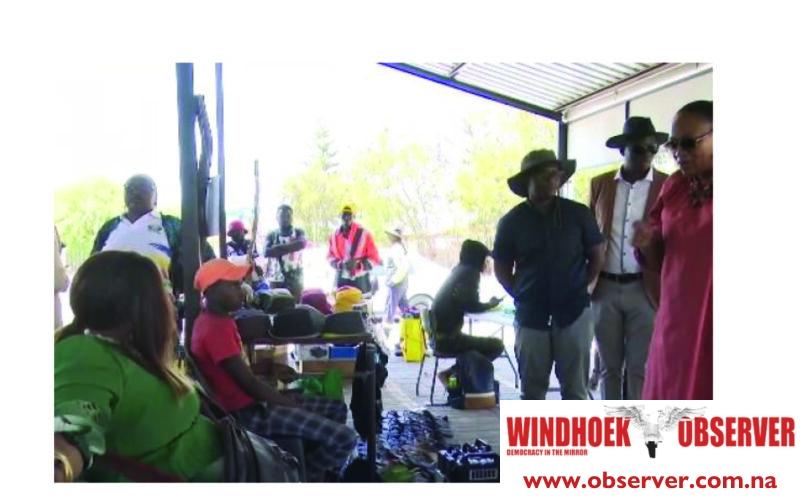Allexer Namundjembo
The parliamentary standing committee on economy and industry, public administration and planning visited informal traders and SME centres in Okahandja on Friday.
The visit aimed to assess how the town is implementing the International Labour Organisation’s Recommendation 204, which supports the transition from the informal to the formal economy.
The visit, led by chairperson Iipumbu Shiimi and deputy chairperson Hilma Iita, aimed to understand the daily challenges faced by small business owners and informal traders.
During the engagement, traders raised concerns about limited access to credit, lack of business training and the need for startup capital, which many source informally from family or friends.
They also spoke about inadequate infrastructure, lack of market space, and harassment, which make it difficult to operate and sustain their livelihoods.
Iita said the committee’s visit was part of a broader consultative process to ensure that the voices of informal traders shape policy decisions.
“We are here to listen, to observe, and to engage, not only with the municipality but with the traders themselves. Their voices must inform the recommendations we bring to parliament,” she said.
She stressed that the informal economy is vital to Namibia’s development and plays a major role in job creation and income generation.
“The informal economy sustains thousands of households and contributes to our GDP, yet traders continue to face obstacles that limit their growth and stability,” she said.
Iita said the committee’s oversight work is guided by Article 98 of the Namibian Constitution, which promotes a mixed economy to secure prosperity and dignity for all citizens.
“Our duty is to ensure that national economic policies cater to every Namibian, from the formal sector to the informal traders who wake up daily to make a living under difficult conditions,” she said.
The committee noted that more than half of Namibia’s employed population works in the informal sector, often without protection or recognition.
It also observed that informal traders in Okahandja struggle with poor access to water, sanitation, and business infrastructure.
The findings from the visit will form part of a report to the National Assembly, which will include recommendations to guide policy reforms, budget priorities, and government oversight.
“Our goal is to transform oversight into action to ensure that government interventions reach the people who need them the most,” Iita said.
The committee commended government efforts to improve conditions for SMEs, citing recent measures announced in the midterm budget review, which extended the validity of good-standing certificates and made the use of clearing agents optional for small businesses.




